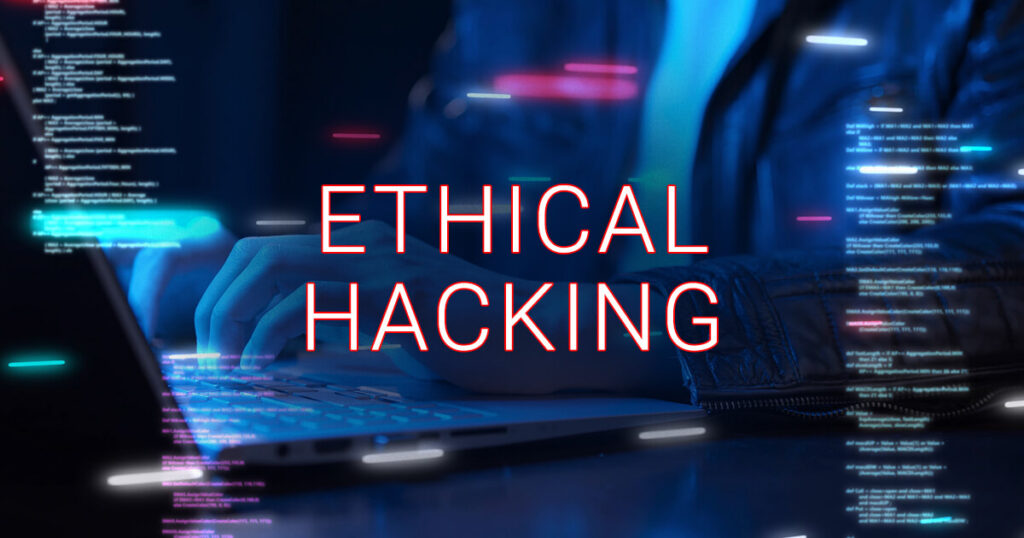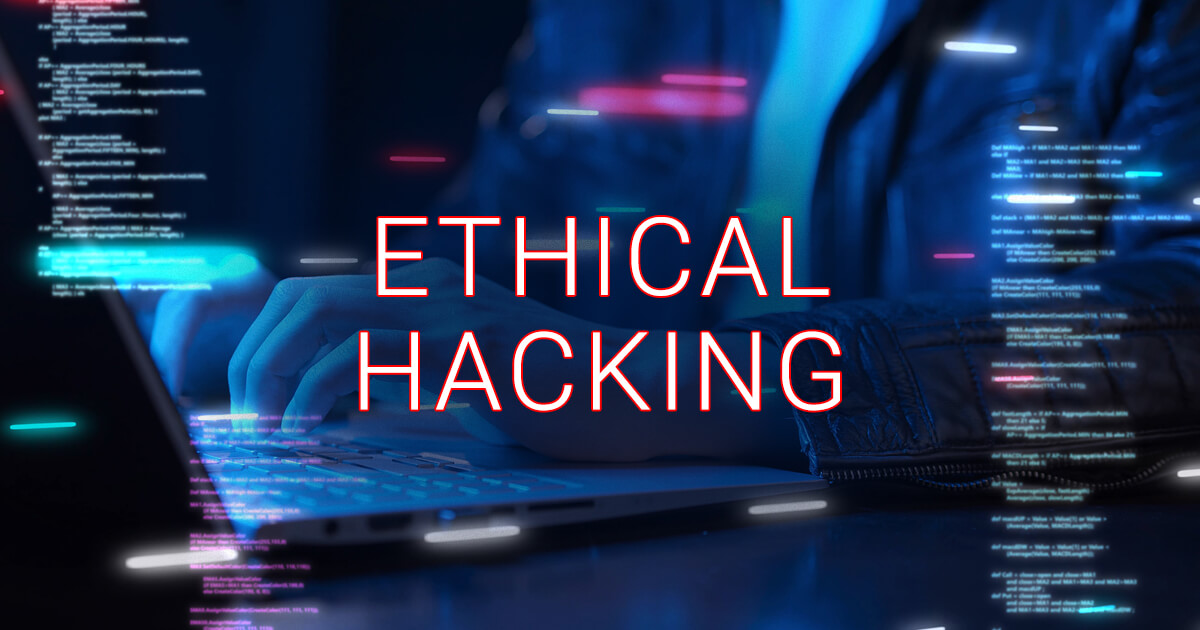In today’s hyper-connected world, data is the most valuable currency and so is ethical hacking. Businesses, governments, and even individuals rely on digital infrastructure for everything from financial transactions to communication and healthcare. But as technology advances, so do the methods of cybercriminals. In 2025, cyberattacks are not only more frequent but also more sophisticated-powered by artificial intelligence (AI), machine learning, and even quantum computing. This is where ethical hacking steps in as a critical defense mechanism.

What is Ethical Hacking?
Ethical hacking, also known as “white-hat hacking,” is the practice of deliberately probing computer systems, networks, and applications to find security vulnerabilities before malicious hackers exploit them. Ethical hackers use the same tools and techniques as cybercriminals, but their intent is constructive: they help organizations strengthen their defenses.
Unlike traditional security audits, ethical hacking simulates real-world attacks, making it one of the most reliable ways to uncover weaknesses. In 2025, with cyberattacks happening every few seconds, ethical hackers are essentially the “digital firefighters” of our time.
Why Ethical Hacking is Crucial in 2025
1. Rise of AI-Powered Cybercrime
Hackers are no longer working alone in dark rooms-they’re leveraging AI and machine learning to launch automated attacks. From AI-driven phishing emails that mimic human behavior to malware that adapts in real time, the cybercrime industry has scaled massively.
Ethical hackers counter this by using AI defensively, predicting attack patterns, and testing systems against automated threats. Without ethical hacking, organizations would constantly play catch-up against smarter and faster cybercriminals.
2. Quantum Threats on the Horizon
With the development of quantum computing, many existing encryption methods are at risk. If cybercriminals gain access to quantum-level processing, they could break traditional cryptography in minutes. Ethical hackers are already researching post-quantum security measures to prepare organizations for this shift.
3. Increasing Remote Work Vulnerabilities
The shift toward remote and hybrid work has introduced millions of unsecured devices into corporate networks. Home Wi-Fi systems, personal laptops, and even IoT devices like smart speakers can become entry points for hackers. Ethical hacking is critical to stress-test these remote setups, ensuring data remains secure no matter where employees work.
4. Protecting Critical Infrastructure
Cyberattacks on healthcare systems, energy grids, and government databases have become more common. A successful breach in any of these areas can have life-threatening consequences. Ethical hackers work with these sectors to prevent catastrophic failures, ensuring safety and continuity.
5. Growing Importance of Data Privacy
Regulations like GDPR in Europe and similar frameworks worldwide are holding organizations accountable for data protection. A single breach can cost millions in fines and reputational damage. Ethical hacking ensures compliance by proactively identifying risks and patching them before regulators or hackers step in.
The Skills Ethical Hackers Need in 2025
Ethical hackers in 2025 require a mix of traditional and next-gen skills:
- AI and Machine Learning Security – Understanding how algorithms can be manipulated.
- Cloud Security – Securing AWS, Azure, and Google Cloud infrastructures.
- IoT and Smart Device Security – Testing vulnerabilities in smart homes, cars, and wearables.
- Blockchain Security – Protecting decentralized applications (dApps) and crypto wallets.
- Quantum-Resistant Cryptography – Developing strategies against future decryption methods.
Ethical Hacking as a Career Path
The demand for ethical hackers is skyrocketing. According to cybersecurity reports, there is a shortage of millions of professionals worldwide. Ethical hacking has gone from being a niche role to a mainstream and highly respected career option. With certifications like CEH (Certified Ethical Hacker), OSCP, and CompTIA Security+, individuals can build rewarding careers protecting digital systems.
Interestingly, many of today’s top ethical hackers started as curious teenagers experimenting with code. Organizations now recognize that “thinking like a hacker” is one of the best ways to defend against real hackers.
The Ethical Dilemma
Of course, with great power comes great responsibility. Ethical hackers must adhere to strict codes of conduct to ensure they use their skills for good. Misusing these skills-even unintentionally-can cause damage. That’s why certifications and professional guidelines are so important in legitimizing the practice.
The Future of Ethical Hacking
Looking ahead, ethical hacking will become even more embedded in everyday life. We can expect:
- Automated Penetration Testing using AI.
- Bug Bounty Programs expanding, where companies pay hackers to find vulnerabilities.
- Integration into Development Lifecycles, ensuring apps and software are secure from the start.
- Global Collaboration among ethical hackers to fight large-scale cybercrime.
In essence, ethical hacking won’t just be an optional service-it will be a necessity for survival in the digital world.
Conclusion
In 2025, as cybercriminals use cutting-edge tools to launch relentless attacks, ethical hacking has emerged as humanity’s strongest shield. It bridges the gap between innovation and security, ensuring that as we advance technologically, we don’t fall victim to our own progress.
Ethical hacking is not just about finding flaws-it’s about building trust in a digital-first world. Without ethical hackers, our financial systems, healthcare networks, and even national security would be at constant risk.
That’s why ethical hacking isn’t just important in 2025 – it’s indispensable. Also Check Future of Human-Computer Interaction – Free Guide – 2025.




1 thought on “Why Ethical Hacking is More Important Than Ever in 2025”